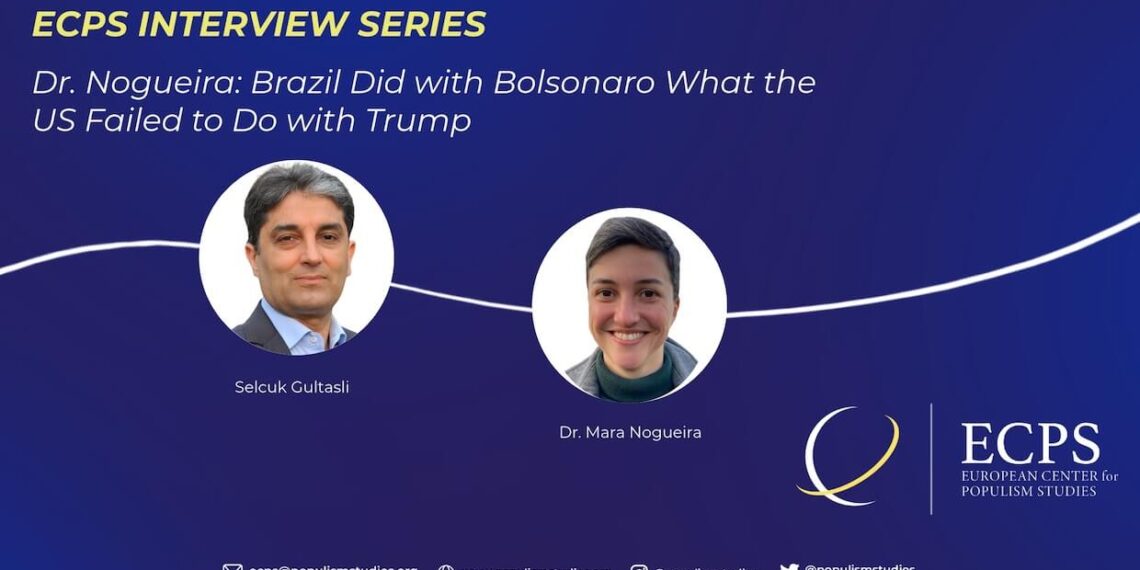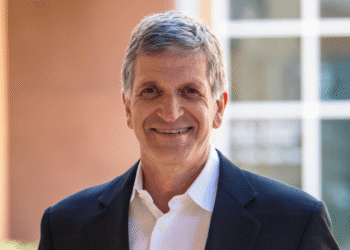In an interview with ECPS, Dr. Mara Nogueira (Birkbeck, University of London) argues that Brazil’s decision to convict Jair Bolsonaro for plotting a coup marks a turning point in democratic accountability. “By convicting Bolsonaro, we are doing what the US should have done with Trump and moving in the right direction toward democracy,” she says. Rejecting claims of judicial overreach, Dr. Nogueira stresses: “The Supreme Court is not overstepping but rather fulfilling its role.” She welcomes the unprecedented prosecution of both civil and military senior officers since the 1964–85 dictatorship, while warning that far-right actors are already mobilizing “judicial dictatorship” narratives. For her, the trial sends a crucial signal: “It’s not acceptable to plan a coup d’état—and if you do so, you will face charges.”
Interview by Selcuk Gultasli
The conviction of former Brazilian President Jair Bolsonaro to 27 years in prison for plotting a coup has generated both domestic turbulence and international controversy. While his lawyers denounce the ruling as politically motivated, and allies abroad echo claims of persecution, Brazil’s Supreme Federal Court (STF) has framed the case as a necessary step to defend democracy against authoritarian threats. Against this backdrop, Dr. Mara Nogueira, Senior Lecturer in the School of Social Sciences at Birkbeck, University of London, reflects on the political and institutional meaning of Bolsonaro’s trial in an interview with the European Center for Populism Studies (ECPS).
Dr. Nogueira underscores that the trial signals democratic resilience rather than overreach: “By convicting Bolsonaro, we are doing what the US should have done with Trump and moving in the right direction toward democracy.” She contrasts Brazil’s approach to accountability with the United States, where Trump has avoided similar consequences: “You had the foot soldiers of the Capitol invasion going to jail, while Trump not only remained free but was also allowed to run for president and become president again.”
In her view, the STF has not exceeded its mandate but fulfilled it: “I think the evidence that Bolsonaro and his conspirators attempted a coup d’état is hard to ignore, so when a crime like that is committed, it needs to be punished. The Supreme Court is not overstepping but rather fulfilling its role.” Importantly, she welcomes the fact that not only Bolsonaro, but also senior officers are facing accountability for the first time since the 1964–85 military dictatorship. “Perhaps Brazil would have had a different history if that had been done sooner,” she notes.
At the same time, Dr. Nogueira remains cautious. She observes that far-right actors are already mobilizing the “judicial dictatorship” narrative: “What they want in this case, however, is impunity. The revenge is already underway, with Congress now voting to expand its protection against legal prosecution.” She also highlights the fragility of Brazilian democracy, pointing to Bolsonaro’s 2018 victory and the January 8, 2023, attack as symptoms of unresolved cleavages. Yet she stresses that the conviction sends a crucial signal: “It does not inoculate against authoritarian relapse, but it does send a message that it’s not acceptable to plan a coup d’état, and if you do so, you will face charges.”
For Dr. Nogueira, Bolsonaro’s conviction represents both accountability and warning. Whether it deepens polarization or strengthens democratic institutions will depend on how political actors and society interpret this landmark moment.


